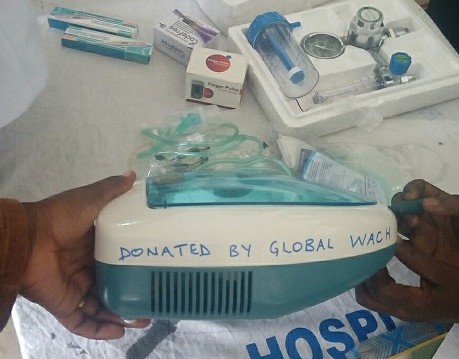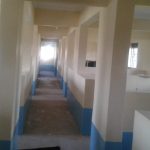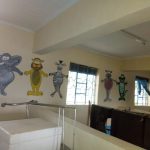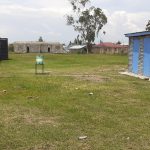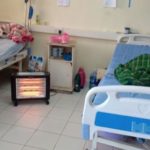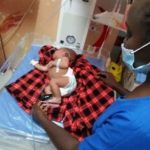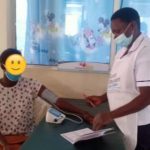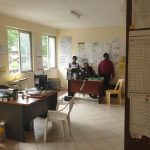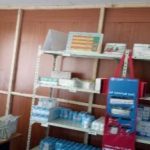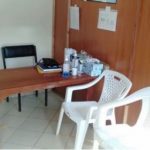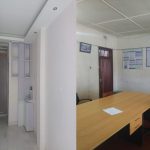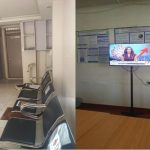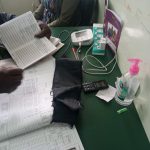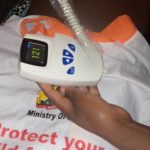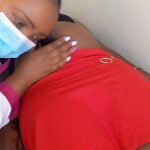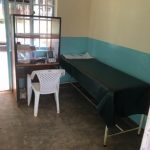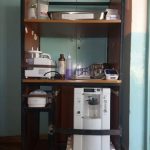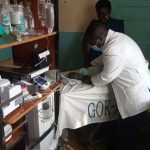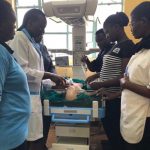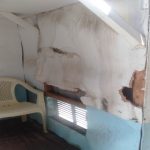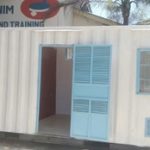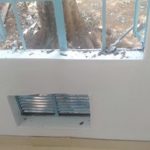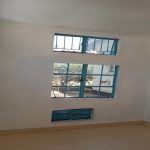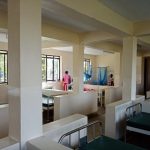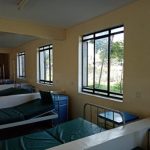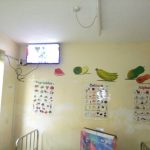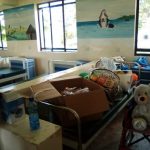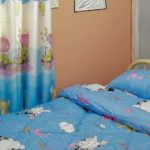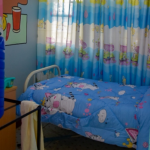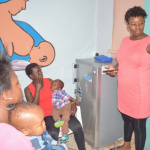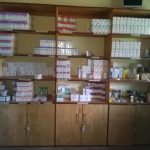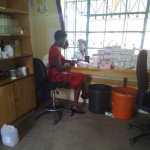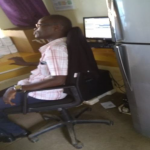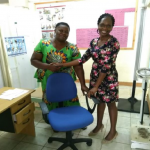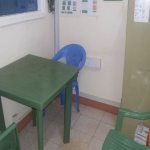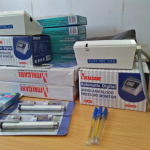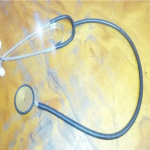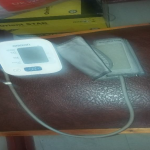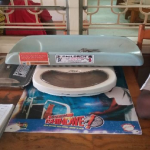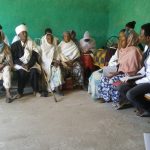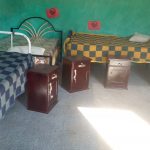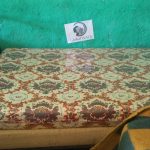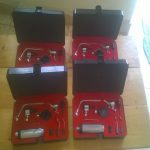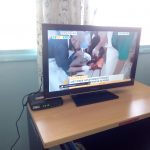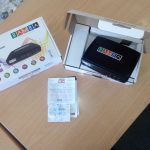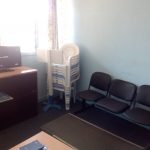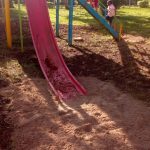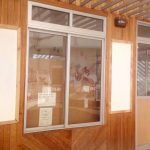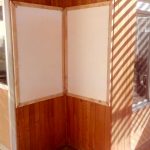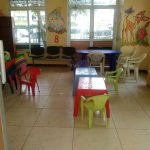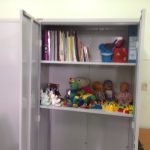Seeds for Change Awards
The 2024-2025 Request for Applications (RFA) cycle is closed.
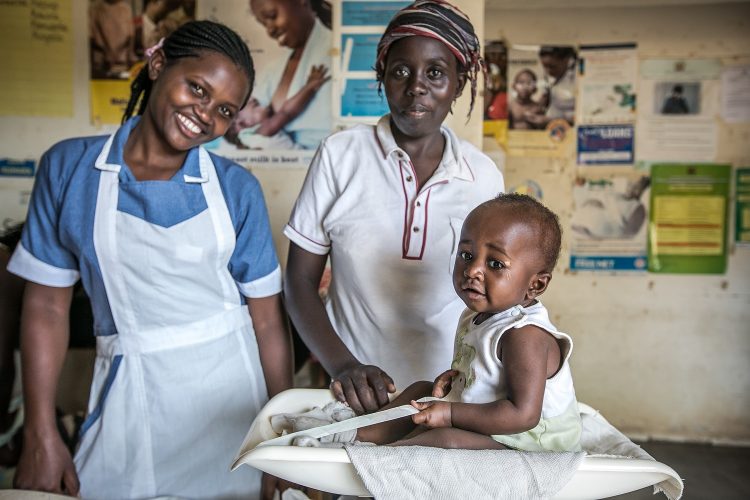
As part of our mission to improve the health and well-being of women, adolescents, and children, we provide Seeds for Change Awards that empower local front-line care providers to identify targets for clinical improvement, compete for support, and advocate for their patients. These awards improve the patient experiences in limited and middle-income countries by improving clinical care, patient satisfaction, workforce empowerment, and health service delivery for programs benefiting WACh health.
Types of Resources Funded
Proposals must address unmet needs and improve the experience of women, adolescents, and children receiving healthcare services.
Potential topics may include but are not restricted to the following:
- Infrastructure improvements to existing structures (paint, furniture, signage) and associated labor costs
- Electronics (telephones, tablets, computers, AV)
- Medical equipment (stethoscopes, scales)
- Youth-friendly clinic improvements (play areas, toys)
- Patient educational materials that are non-consumable
Proposals that will not be considered:
- Consumable supplies (gloves, gowns, notebooks, etc.)
- Items that will not be retained at the site (e.g., giveaways to patients)
- Items and supplies that are already provided through government programs (e.g., mosquito nets)
- Ongoing salary support for staff
Eligibility Requirements
Applicants must be employed by a current UW partnering organization (defined as an entity engaged in joint activities with UW faculty or staff) in a resource-limited setting and is a staff or faculty member working in a health program/clinical setting serving WACh populations.
Budget Guidelines
Awards of up to $1,500 USD are available. Award proposals for equal or less than $1,500 are strongly encouraged and will be given preference due to the scope of the award. Items and services budgeted at $500 USD or more are required to have a quote.
Application and Submission Guidelines
Applicants fill out a short, detailed form describing an idea for a change that can positively impact the patient experience at their site. Proposals should not exceed word limits listed for each component and should be typed in Arial size 11 font. Applications that are incomplete or do not follow instructions may not be considered. Successful applications will address the following components:
- Explain the unmet need
- Describe the specific resources requested
- Outline the health-related outcomes the proposal addresses (improved care, improved patient satisfaction, health care worker (HCW) empowerment, improved health service delivery)
- Describe the potential impact of the project on the target population’s health
- An itemized budget
Send your completed application to gwach@uw.edu by Monday, October 21st, 2024 at 11:59 PM Pacific Standard Time (PST).
Review Criteria
Applications are reviewed by a panel and the highest quality ideas demonstrating tangible change are chosen. A diverse panel of researchers, who have relevant clinical and educational expertise of healthcare systems in limited and middle-income settings, from Global WACh and the UW Department of Global Health scores each application using the following criteria:
- Significance/Impact: Does the request address an important unmet or underserved clinical need?
- Beneficiaries: Who are the direct beneficiaries of the resource request? Women, children, adolescents, health care workers? Will the request jointly benefit multiple target populations?
- Feasibility: Is the proposal realistic given the scope of the award?
- Collaboration: If funded, will the proposal strengthen existing Global WACh collaborations, or initiate new collaborations?
Re-budgeting Policy
The Seeds for Change Awards are expected to be used as described in the grant proposal, which was reviewed and selected by the reviewers and program team for funding. This helps assure the integrity of our award process, and additionally respects and honors the work of the review committee and administrative team who conduct the award competition and review process.
Under exceptional conditions, the Awardee may request revision of an award. These include:
- Category 1: The price of the item has changed and the item is no longer available for purchase at the original quote price.
- Documentation must be provided to show both the original and new quotes.
- Category 2: The item is no longer available due discontinuation or import/export issues.
- Documentation is required.
- Category 3: While waiting for the award, the site has acquired the requested items, or conducted the requested activities (renovations, repairs, improvements, etc) and the original request is no longer needed.
- Documentation must be provided as a letter from the site.
Revision process:
- The Awardee contacts Global WACh administration at gwach@uw.edu to request a revision of award.
- The Awardee completes the revision request paperwork and provides documentation appropriate to the request (as described above).
- The Global WACh leadership team reviews the request and denies/approve the revision.
Download and complete the Re-budget Request Form.
Support the Award Fund
Make a Gift to the Seeds for Change Award Fund
Seeds for Change Awards are funded by donors like you. See the impact of your gifts at collaborative sites, like Katito Subcounty Hospital in Kisumu, Kenya, below. For donors wishing to make larger gifts, Global WACh will work with you to create special awards focused on specific goals. Please contact us at gwach@uw.edu for more information on creating a special award.
“The admission ward now looks much better, beautiful, warm, and friendly. The project has impacted positively on children who get admitted by calming their anxiety after seeing the drawings on the walls. It distracts them from the pain they undergo from their illness and of treatment administered especially injections. The washrooms, initially a couple of meters away, are now nearer to the ward, enabling the patients and their caregivers to access them better especially at night and when it rains. The project has tremendously transformed the place from its former state.”
— Dominic Bosire, 2018 Recipient
Award Recipients
Since 2015, 43 recipients received Seeds for Change Awards. Learn how they used the seed funding to transform patient care experiences, leading to improved health outcomes among women, adolescents, and children.
2025
Creation of a Staff Lactation Room
Award: $1,500
Awardee: Douglas Bosibori
Site: Naivasha County Referral Hospital, Kenya
The Problem: Over the past year, a number of staff members have given birth. Despite the hospital’s support for breastfeeding staff, the site lacks a dedicated space for lactation during working hours.
The Seed: Fridge to store breastmilk, tables, curtains, labor costs for room renovations and repairs
The Growth: By providing a clean, private area for breastfeeding mothers to express milk, we directly support exclusive breastfeeding, a vital practice for infant health, immunity, and development. Empowering healthcare workers, particularly new mothers, reduces workplace stress and enhances job satisfaction, facilitating a better work-life balance.
Enhancing the Standard of Care for Maternal and Child Health
Award: $1,350
Awardee: Priscah Lihanda
Site: Migori County Referral Hospital, Kenya
The Problem: The hospital is in need of simple medical equipment and supplies for mothers to feed newborns efficiently and create a warm environment to prevent hypothermia, as well as basic office supplies for staff to comfortably work and serve patients.
The Seed: Glucometers, pediatric pulse oximeters, reusable neonatal nifty feeding cups, room warmers, electric water kettle, lockable drawer cabinet, tables, chairs
The Growth: Medical equipment will assist in timely identification and management of sudden changes in a child’s clinical condition and lead to better health outcomes. The newborn feeding cups and electric kettles will help with timely feeding and support healthy growth trajectory among infants. Other equipment will support staff in keeping patient data and supplies secure and confidential, as well as providing workplace comfort and satisfaction.
Renovating Clinic Space
Award: $1,326
Awardee: Hellen Moraa
Site: Migosi Subcounty Referral Hospital, Kenya
The Problem: The hospital’s maternal-child health clinic serves patients and research participants enrolled in a UW/University of Nairobi/Kenyatta National Hospital study. Shared clinical space is partitioned by curtains and does not ensure privacy, comfort, or efficient workflow.
The Seed: Construction materials and labor costs to create three separate rooms for specific uses (two for research activities, one for clinical services)
The Growth: The upgrades will lead to higher patient satisfaction and an overall improvement in the quality of care delivered for women and children.
Strengthening Quality of Care for Maternal, Neonatal and Adolescent Health
Award: $1,108
Awardee: Christine Nthambi Mule
Site: St. Joseph Mission Hospital Ombo, Kenya
The Problem:
The Seed: Medical equipment, room heaters, electric kettle
The Growth:
Caring for Our Future: Upgrading Facilities for Maternal and Child Health Services
Award: $1,4430
Awardee: Derrick Oungo
Site: Rongo Subcounty Hospital, Kenya
The Problem: Multiple departments often share medical devices that are in poor condition or are part of incomplete sets, resulting in inaccurate health measurements, difficulty in providing quality care to patients, and delays in initiating treatment in patients at critical times.
The Seed: Fetal doppler machine, blood pressure machine, oxygen concentrator, reusable birth delivery set
The Growth: The purchase of additional medical devices will result in more accurate health measurements, identification of conditions and timely treatment responses, and improved ability to conduct safe vaginal deliveries.
Improving Service Delivery and Clinical Outcomes in Children, Adolescents, and Pregnant Women
Award: $1,388
Awardee: Joyce Otiento
Site: Kisii Teaching and Referral Hospital, Kenya
The Problem: The pediatric ward lacks enough IV drip stands to ensure the IV system is kept in sanitary conditions. There are no room heaters in the pediatric and maternity wards, predisposing newborns and sick children to the risk of hypothermia. Children at routine health appointments being measured for weight, height, and mid-upper-arm circumference do not have a private space, causing caregivers discomfort and reluctance to bring their children to the hospital for appointments. There is a lack of basic furniture for hospital staff to comfortably work.
The Seed: IV drip stands, room heaters, foldable hospital screens, tables, chairs
The Growth: Improvements to the pediatric ward will improve health outcomes among hospitalized children and newborns. Provision of foldable screens can help build trust and confidence with healthcare staff, improving care-seeking behaviors for their children and resulting in improved health outcomes in the community. Supplying tables and chairs for staff will improve efficiency and productivity, leading to better patient care and job satisfaction.
2023
Female friendly toilets for women and children
Award: $1,498
Awardee: Dr. Joy Githua
Site: Kenya Medical Research Institute (KEMRI) Centre for Respiratory Disease Research
The Problem: Serving approximately 50 patients daily, with a majority being women and children, the insufficient restroom facilities often compelled mothers with infants to change diapers while holding their babies or defer the process until the end of the visit, which could sometimes extend over an entire day. Likewise, women and adolescents during their menstrual cycle would delay necessary changes, increasing their susceptibility to infections. Older children, while awaiting attention, were compelled to use public shared spaces to attend to their needs. Due to the insufficient restroom facilities, the elderly tended to avoid or delay their visits.
The Seed: Materials and labor to create new toilet facilities
The Growth: Ensure proper hygiene levels, and eliminate queuing and site visit postponements due to insufficient facilities. Furthermore, the provision of a private and comfortable space for mothers to change their babies’ diapers or breastfeed, equipped with a wash area and a bench, is designed to enhance privacy and convenience for women and children, while also addressing the needs of elderly and disabled women.
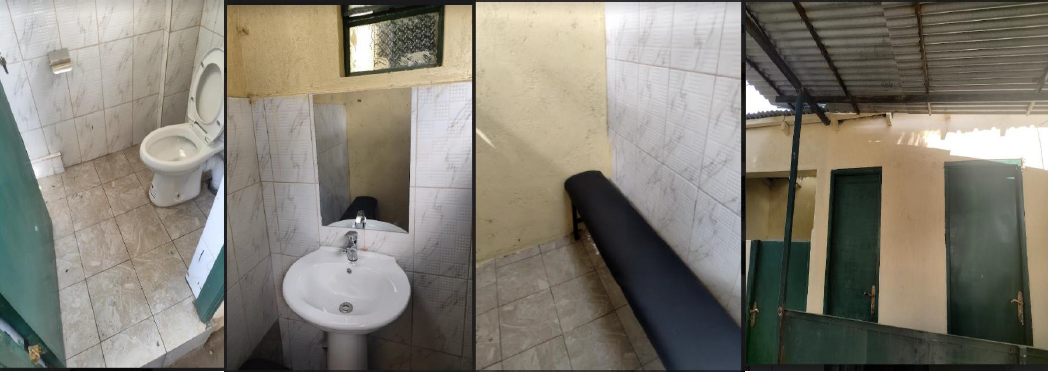
Improving monitoring of perioperative children in the paediatric surgical unit
Title: Improving monitoring of perioperative children in the paediatric surgical unit at Migori County Referral Hospital
Award: $1,450
Awardee: Dr. Timothy Jumbi
Site: Migori County Referral Hospital
The Problem: The unit can only accommodate 6 children at any given time, coupled with the high demand from children with other medical conditions, this ICU is always operating in full capacity with no space to accommodate children with surgical conditions. The ward is therefore obligated to accommodate children who require high dependency care and occasionally those who require intensive care, a factor leading to increased deaths in children undergoing surgery.
The Seed: A patient monitor
The Growth: With a second monitor equipped in the unit, the unit can perform continuous non-invasive monitoring to patients requiring high dependency care. There is a significant reduction in hospital stay, morbidity and mortality. The patient satisfaction rate improved.
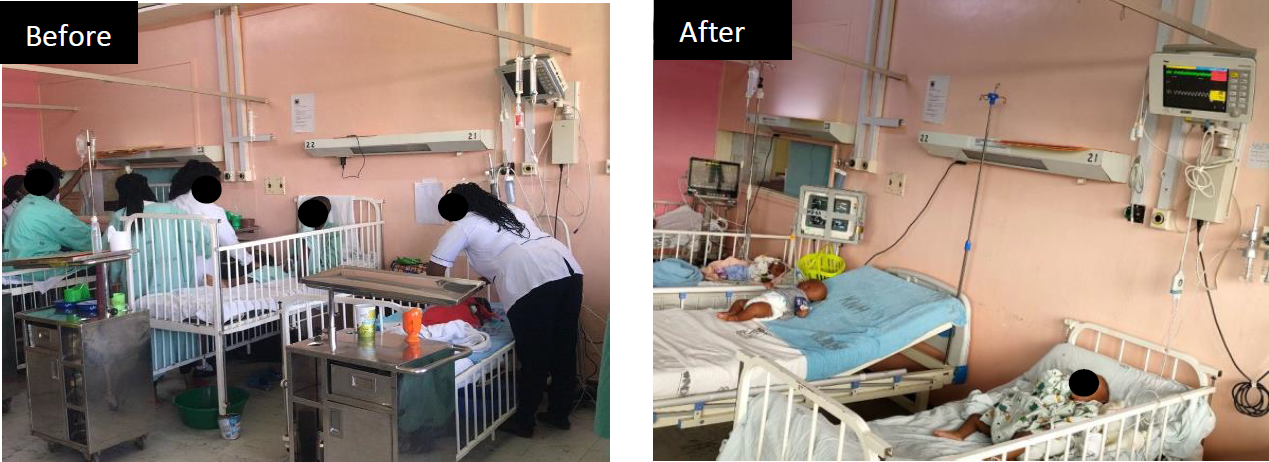
Strengthening quality of care for Maternal, Neonatal, Child and Adolescent Health Services
Award: $1,450
Awardee: Priscah Lihanda
Site: Migori County Referral Hospital
The Problem: The site is a level 4 hospital that serves >500,000 patients annually, of whom 66% are pregnant women, adolescents, and children under five. The facility has partnered with Kenya Medical Research Institute-University of Washington research collaborations to conduct several studies in the past 10 years with a focus on improving health outcomes among pregnant women and their infants, children admitted to hospital, and HIV services among adolescents, women and children. Additional resources awarded to the facility can improve care for patients and fill gaps in achieving research goals.
The Seed: Pediatric nebulizers, oxygen regulators, digital infant weighing scales, mini gazebo tent for tuberculosis sputum sample collection, TV to stream health education messages in waiting room
The Growth:
- The pediatric nebulizer machine will help in emergency situations and provide continuous relief of children with difficulty in breathing due to respiratory conditions. There are currently delays and inadequate care due to the shortage of nebulizers. Additional nebulizers will lead to timely and appropriate management of respiratory emergencies with improved health outcomes for children.
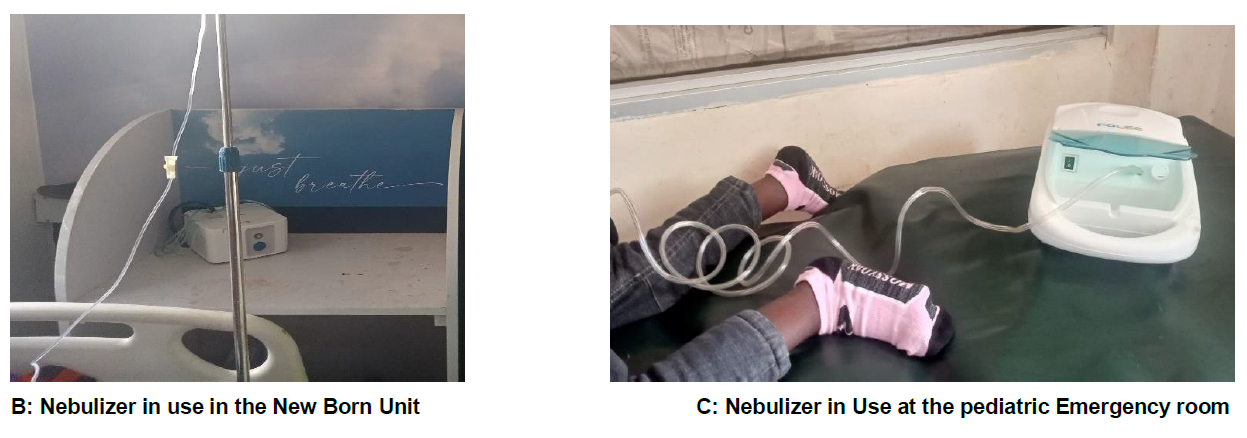
- Additional oxygen regulators will help in delivering oxygen to more children in the pediatric and newborn unit in need of oxygenation. This will ensure adequate oxygen therapy is given in time and not intermittently, to all children in need. The improved service delivery will hasten recovery and reduced mortality and better health outcomes for children and overall client satisfaction.
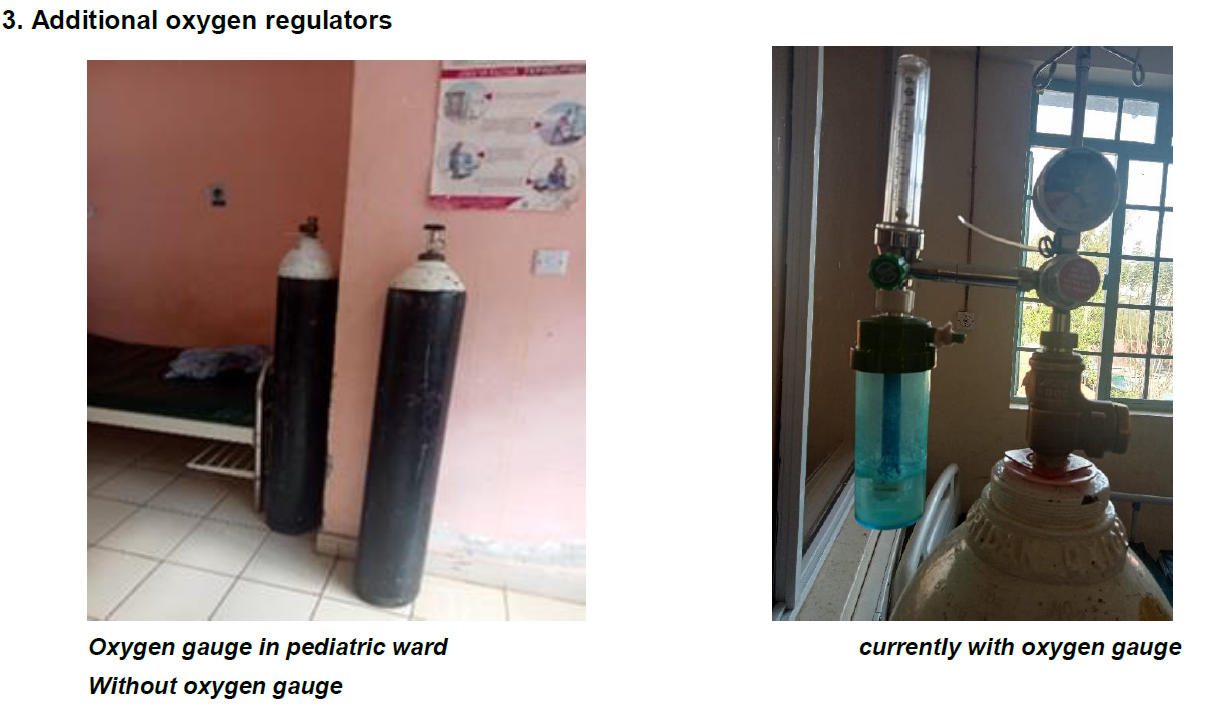
- Television screens will help mothers at the MCH and pediatric ward to get health messages on immunizations, nutrition including breastfeeding, and other topical areas throughout the day in local languages ensuring all caregivers are covered. This will improve caregiver understanding and involvement in their health.
- Digital weighing scales for growth monitoring will ensure that the weight of children is consistently monitored since MCH is the first triage area for children before accessing other clinic services. This will ensure enhanced referral for appropriate management.
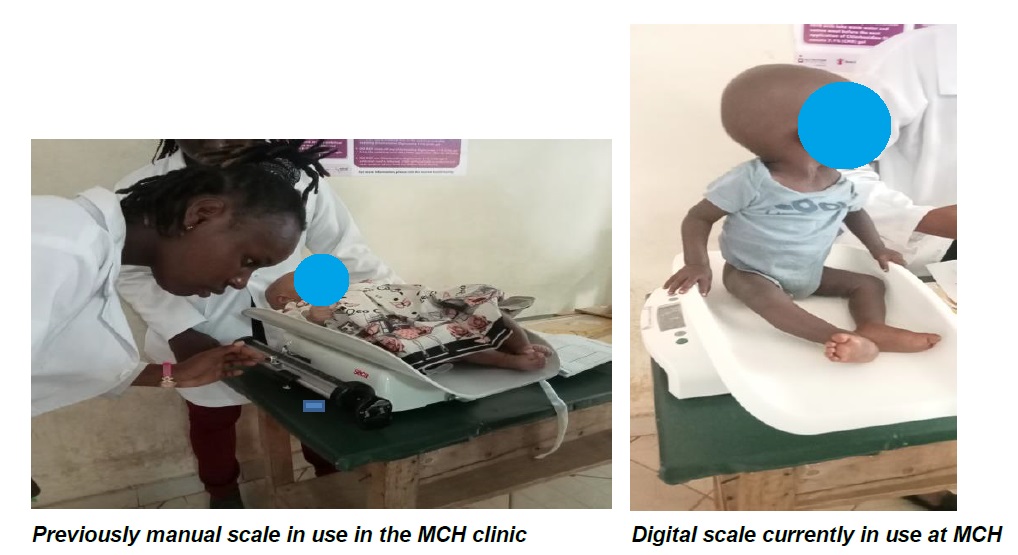
- Gazebo mini tent for the TB patients on follow up for sputum sample expectoration will protect the vulnerable groups such as pregnant mothers, newborns, sick and immunocompromised children, who are brought to MCH for immunization from contracting TB. Currently the facility does not have a designated area, which poses a risk to vulnerable populations.
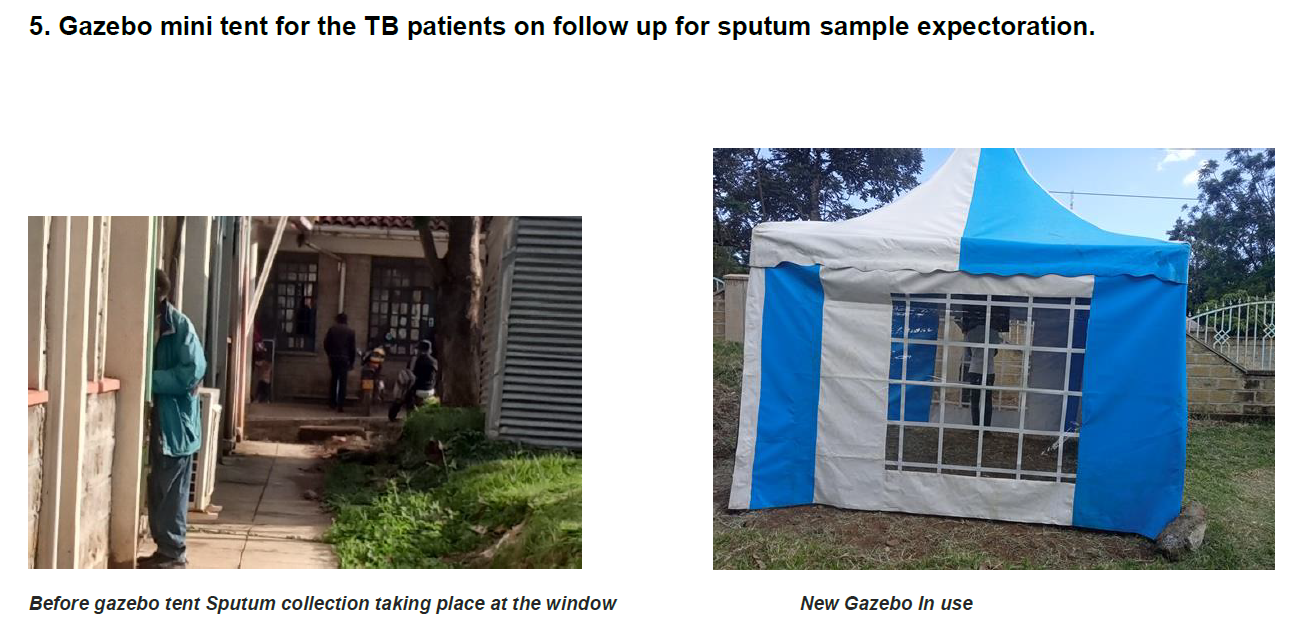
Strengthening service provision and quality of care for improved maternal and pediatric health outcomes
Award: $1,206
Awardee: Maurice Okello
Site: Kisii Teaching and Referral Hospital
The Problem: For nearly 15 years, the site has partnered with the Kenya Medical Research Institute-University of Washington research collaboration focusing on the health of women, adolescents, and children. Equipment to monitor paediatric growth, early diagnosis of nutritional disorders, and manage common respiratory conditions are urgently needed to provide care to patients and support the research partnership.
The Seed: Shorr board, digital pediatric weigh scales, height measuring scale, electric room heater, handheld pulse oximeter
The Growth: Proper diagnosis and management of various paediatric health conditions that can lead to improved service delivery and better health outcomes. Proper equipment incentivizes healthcare workers to perform examination and screening procedures with greater satisfaction, knowing that they are improving clinical outcomes.
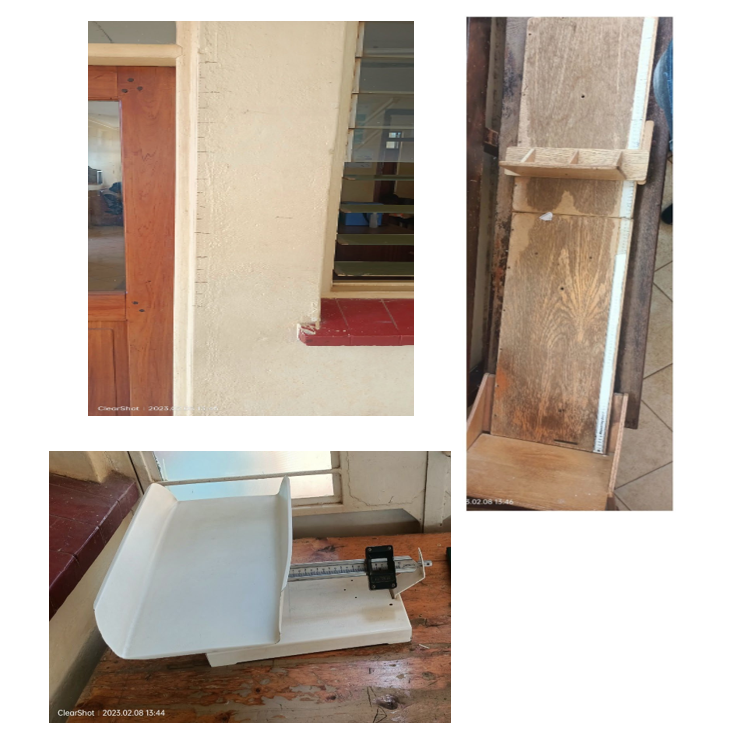
Existing pediatric weigh scale and tools to measure height.
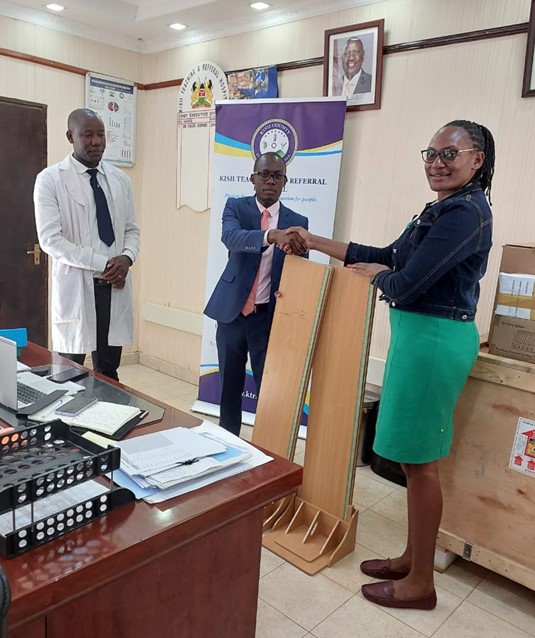
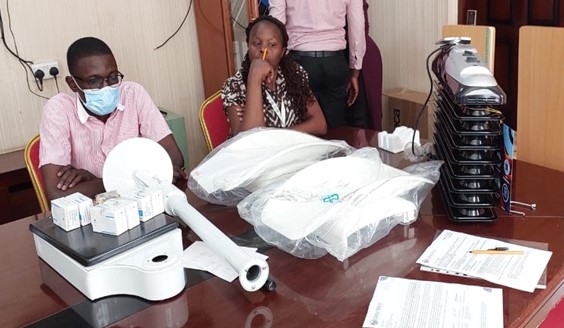
The new additional equipment have improved growth milestone monitoring and nutritional disorders screening and diagnosis. It particularly improved coordination, vital signs monitoring, and care management of malnutrition cases among children with upper respiratory infections and has improved health outcomes. Patients and caregivers spend less time waiting and receiving care and can return to normal activities sooner.
Improving services and care for children and women at the MCH, Pediatric, and Maternity wards
Award: $1,475
Awardee: Maurine Anyango Okello
Site: Rongo Sub County Hospital
The Problem:
The Seed: Office furniture, room heater, digital pediatric weighing scale, Shorr board, height measuring scale, nebulizer
The Growth: The purchase of furniture and medical equipment has strengthened the relationship between the hospital staff and research team, and improved service delivery within the respective departments. Furniture provides comfort and an improved working environment for staff; even improving their workflow to see clients, leading to reduced wait times. Metal cabinets provide secure storage of medical records and information.
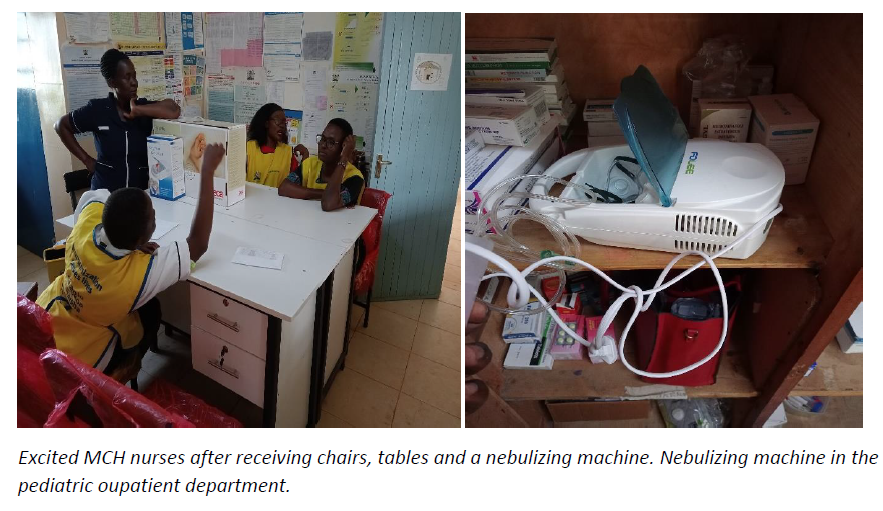
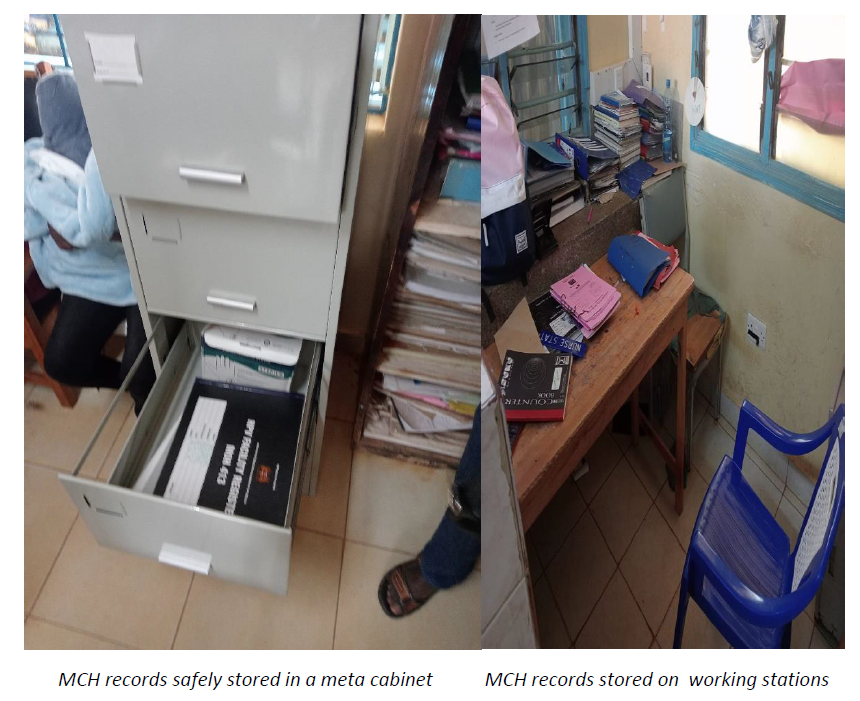
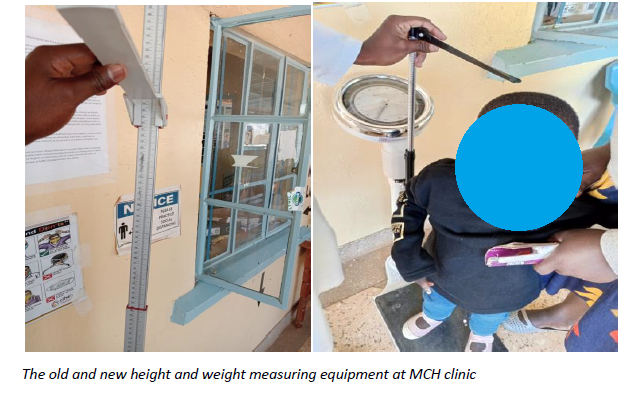
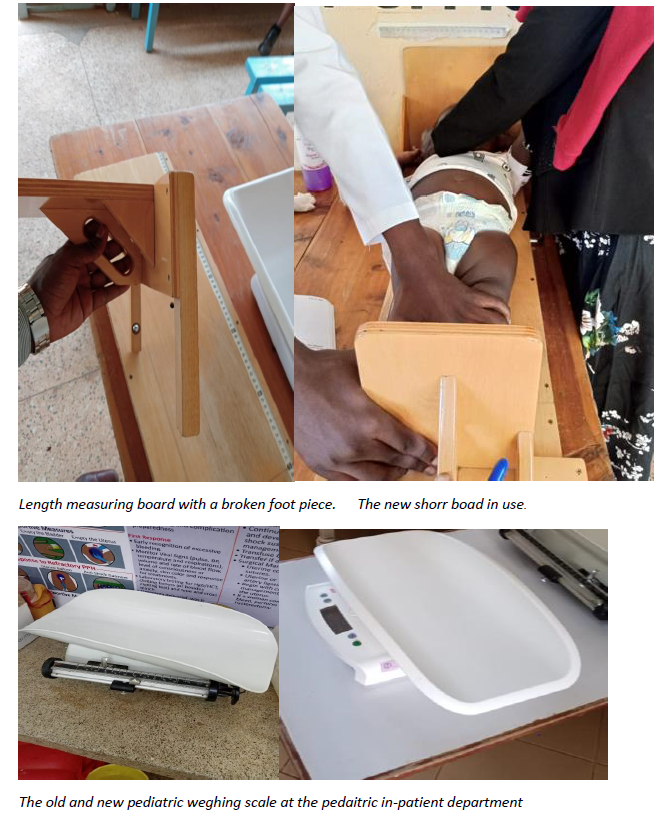
Improving the Dandora 2 Health Center Pediatrics Occupational Therapy Ward
Title: Improving the Dandora 2 Health Center Pediatrics Occupational Therapy Ward
Award: $1,096
Awardee: Judith Onyango
Site: Dandora 2 Health Center Pediatrics Occupational Therapy Ward
The Problem: The site is facilitating activities of a University of Washington-University of Nairobi research collaboration focused on the effect of air pollution on early childhood brain development. The unit serves around 300 children with various neurodevelopmental delays mostly resulting from birth injuries. There is an urgent need to improve the existing paediatrics occupational therapy unit to improve their ability to offer effective services to children with neurodevelopmental delays, often resulting from birth injuries. Existing resources are lacking or in poor state of disrepair.
The Seed: Therapy balls, mats, walking aids, standing aids, benches
The Growth: Encourage mothers and caregivers – particularly from low socioeconomic backgrounds – to bring children in to be seen by providers. Improved service delivery, leading to shorter wait times for therapies. Adequate equipment and tools, such as the therapy balls and mats, allow providers to offer more effective and appropriate services to children, leading to improved health outcomes.
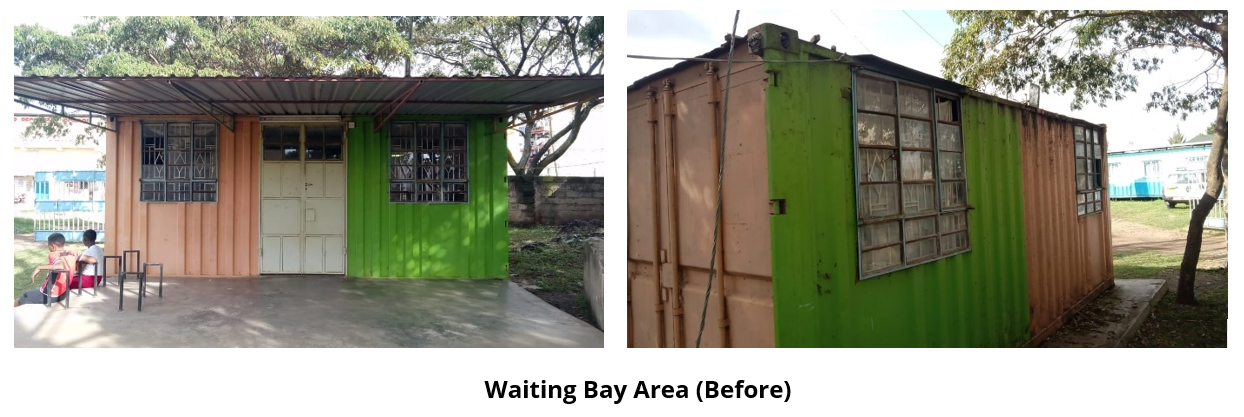

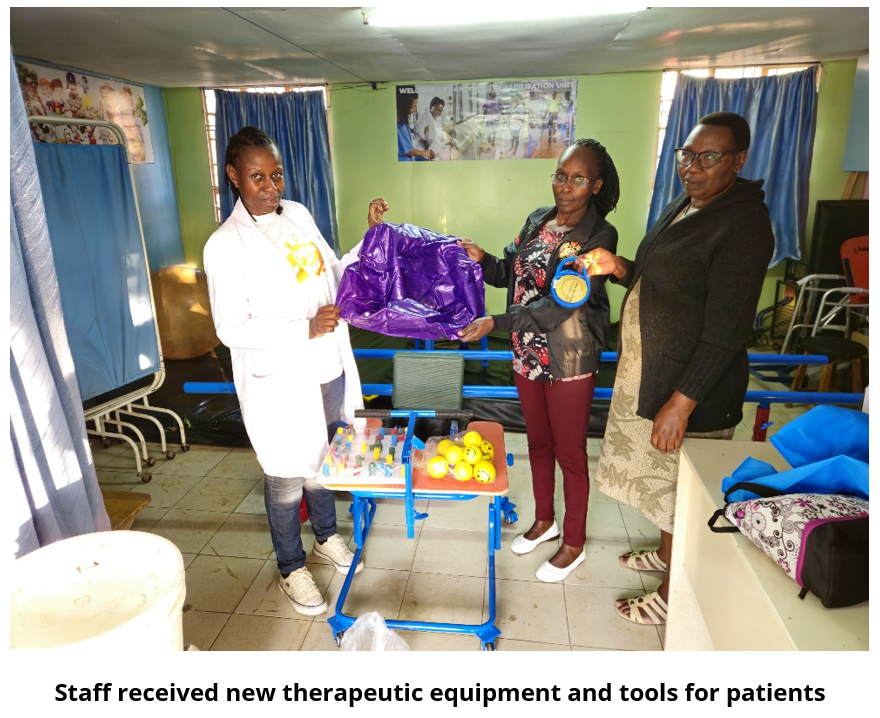
Purchase of furniture and medical equipment for a maternal child health clinic
Award: $1,425
Awardee: Felix Abuna Otieno
Site: Yala Sub County Hospital
The Problem: The site supports several PrEP-related research projects partnered with the University of Washington and Kenyatta National Hospital. It is one of three hospitals in the county that provide round-the-clock pediatric and obstetric services. Services for children under five, pregnant mothers, and those seeking family planning are free-of-charge; this creates a need for some essential medical equipment to enhance service delivery.
The Seed: Benches, office furniture, computer, IUCD set, stethoscopes, digital BP machine, forehead thermometers
The Growth: The staff offering the services will enjoy higher quality and increased space capacity as they serve the volume of clients since as we intend to purchase furniture for both staff and patients use. By using the award to purchase medical equipment and furniture, quality service delivery will be ensured for the benefit of clients. Safety of patient information and records will also be ensured of by purchase electronic devices for data storage and ease of access of information.
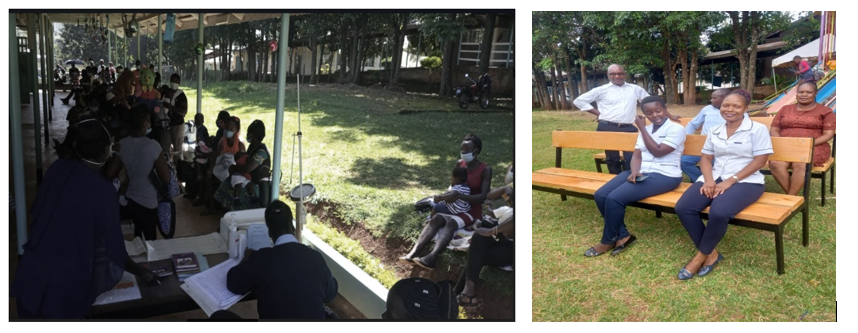
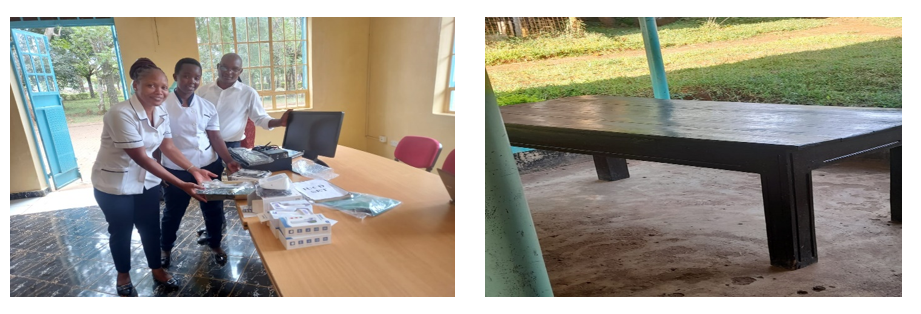
Improving care and health outcomes for women and children in the MCH and Pediatric ward
Award: $1,040
Awardee: Joyce Akinyi Otieno
Site: Homa Bay County Teaching and Referral Hospital
The Problem:
The Seed: Adult and pediatric weighing scales, thermometer, oxygen splitters, metal cabinet
The Growth:
- The availability of 4 thermometers for the pediatric ward and MCH department has resulted in the prompt identification of fever for quicker diagnosis and treatment of febrile illnesses.
- The metal cabinet in the pediatric ward has reduced the loss of patient records as the documents are now stored under lock and key.
- The weighing scales have resulted in accurate weight measurements for dosage calculations and also reduced the waiting time for pregnant women and children at the MCH.
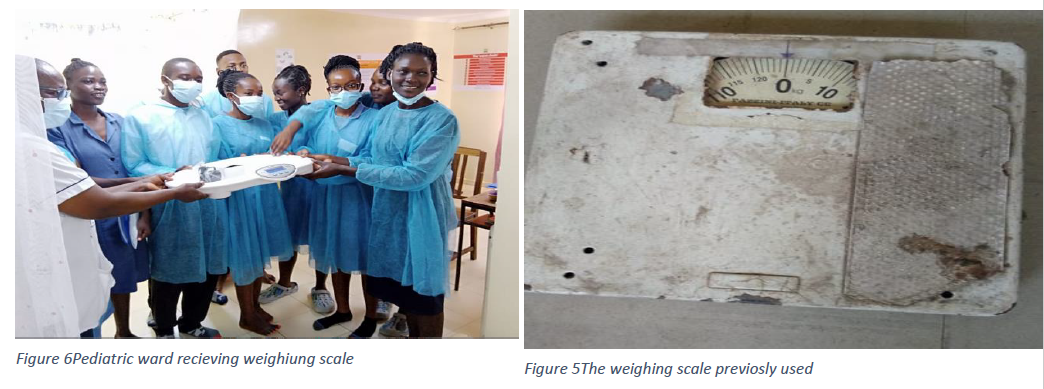
- The oxygen splitter has improved the outcome of children in the Newborn unit. Currently, Up to five neonates can receive oxygen therapy at the same time.
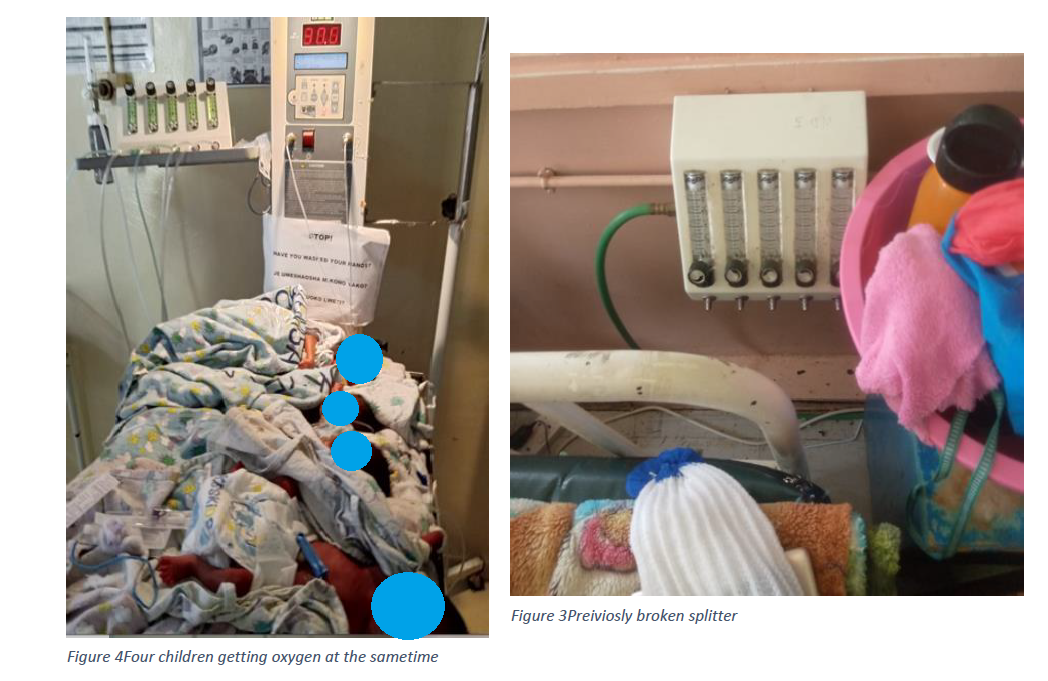
Empowering postpartum women with digital health content
Award: $1,450
Awardee: Brenda Wandika
Site: Mathare North Hospital
The Problem: Educating mothers on essential newborn care practices – early initiation of exclusive breastfeeding (EBF), hygienic cord care, and thermal control – has been shown to improve neonatal outcomes; therefore, providing education and support within the facility is a potentially critical time. There is, however, insufficient health care provider resources at Mathare to educate women on these practices. The healthcare staff hold round-table discussions to address incidences with patients and lessons learned; however, the current format does not motivate staff to participate.
The Seed: TV and accessories; digital LCD projector
The Growth: The mounted TV will display health information, leading to improved maternal self-efficacy on infant care and birth experiences. At the round-table meetings, the digital LCD projector is intended to connect to laptops and screens, creating a more efficient environment to share experiences and facilitate richer discussions among healthcare workers.
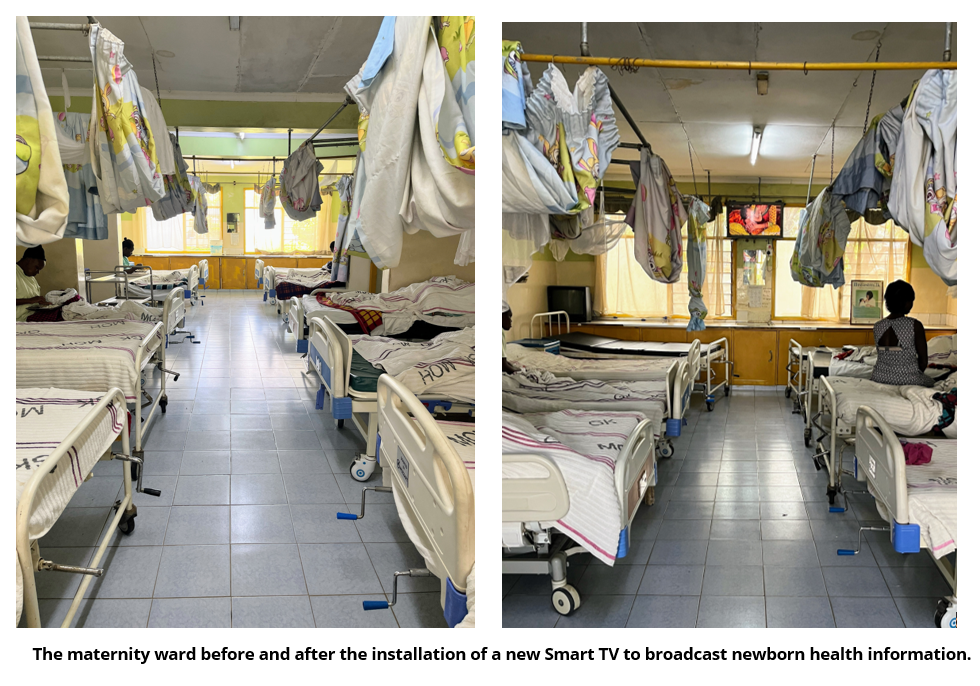
2019
Purchasing Games and Toys to Support HIV+ Children and Adolescents
Title: Purchasing resources for the Lighthouse Trust Children and Adolescent Support Program
Award: $975
Awardee: Christine Kiruthu-Kamamia
Site: Lighthouse Trust, Lilongwe, Malawi
The Problem: Adherence and viral load suppression among adolescents remain a challenge due to multiple barriers experienced by adolescents.
The Seed: Games and toys for the Teen Club, and play therapy toys for the Gender-Based Violence (GBV) One-Stop Center
The Growth: Supportive games and sports will entice adolescents living with HIV to attend the Teen Club frequently to learn positive lifestyle habits and skills. Psychosocial therapists can offer more culturally appropriate and child-centered tools in therapy and service delivery to children who have experienced GBV.
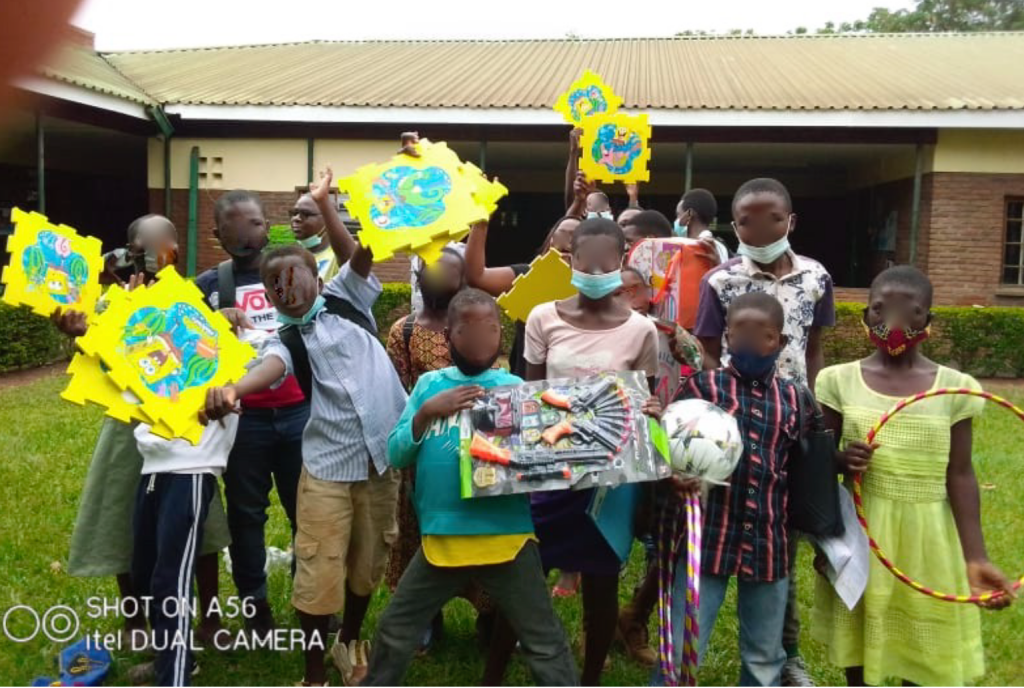
Improving Care for Women and Children at a Referral Hospital
Title: Improving privacy and care for women, and favorable health outcomes for neonates and malnourished children
Award: $715
Awardee: Dr. Benson Singa
Site: Migori County Referral Hospital, Migori, Kenya
The Problem:
The Seed: Portable room heaters, blood pressure machines, neonatal pulse oxymeters, and materials to partition consultation rooms.
The Growth: The additional heaters will reduce the risks of recovering malnourished children from developing hypothermia and will decrease hospitalization time. The essential monitoring equipment will ensure healthcare providers can provide life-saving interventions when needed and improve neonatal health outcomes. Partitioning the consultation rooms for antenatal and HIV services will increase efficiency in service delivery to multiple patients at a time and improve patient privacy.
Engaging Women and Adolescents with Digital Health Education Content
Title: Enhancing waiting room experiences for women and adolescents
Award: $960
Awardee: Dr. Nelly Mugo
Site: Partner in Health Research and Development Research Site, Thika, Kenya
The Problem: Long patient wait times and lack of engagement can have negative impacts on adolescent participant retention in clinical research studies.
The Seed: Flat screen TVs with USB flash drives to play health education content (i.e. sexually transmitted diseases, safe sex, nutrition) and a phone charging station.
The Growth: More informative content in the waiting rooms will help adolescents stay engaged with their providers about their health needs. The charging station will entice adolescents to adhere to their clinical visits.
Providing Clean Water to Enhance Experiences of Pregnant Mothers
Title: Improving infrastructure to support maternity care
Award: $950
Awardee: Brenda Wandika
Site: Mathare North Health Centre, Nairobi, Kenya
The Problem: Frequent water shortages at this 24-hour health facility make meal preparation, laundry, and proper handwashing challenging. Inadequate equipment to monitor maternal and fetal health during labor delivery.
The Seed: A 3,000-liter water storage tank, a digital blood pressure monitor, and a doppler fetal monitor.
The Growth: The availability of food and clean linens will improve delivery experiences for expectant mothers. Improved hand washing will prevent infections among mothers and infant patients. Due to unforeseen challenges from the COVID-19 pandemic, the water storage tank was not purchased. The medical equipment will allow for early detection, diagnosis, and referral of fetal complications and improve health outcomes.
Purchasing Emergency Response Equipment
Title: Emergency response equipment for the FIT/STEP-UP Study
Award: $975
Awardee: Emma Otieno
Site: Yala Sub County Hospital, Yala, Kenya
The Problem: A lack of resources to provide a coordinated emergency response causes delayed and in some cases, inappropriate care to sick children and mothers, increased likelihood of preventable hospital admissions, increase treatment costs, and long-term morbidity and mortality.
The Seed: Basic emergency equipment, such as an oxygen concentrator, a suction machine, and a pediatric sphygmomanometer.
The Growth: Reduces the number of preventable deaths of mothers, newborns, and children under age five.
Improving Emergency Response in a Maternity Ward
Title: Improving the emergency response in the Maternity Ward
Award: $1,000
Awardee: Ednah Ojee
Site: Mathare North Health Centre, Nairobi, Kenya
The Problem: Lack of a central space to store emergency obstetric care and infant resuscitation equipment, causing delays in nurses to move materials between patients in need of immediate care.
The Seed: Emergency equipment trolley with storage shelves.
The Growth: The improved emergency response time will reduce maternal-child morbidity and mortality.
Expanding Hospital Space for MCH and TB Care
Title: Refurbishing hospital space for TB and MCH care
Award: $998
Awardee: Matemo Daniel
Site: Lumumba Sub County Hospital, Kisumu, Kenya
The Problem: Limited space to provide care to a high volume of maternal-child patients in a high HIV and tuberculosis (TB) burdened region.
The Seed: Renovation of a 10×20 foot container to outfit two rooms for clinical and laboratory procedures.
The Growth: Reduces patients’ wait times as more patients can be seen at once, ensures patient privacy during procedures, and improve care delivery services including TB screening and HIV drug adherence counseling.
Improving Perinatal Monitoring Capacity for Maternal-Neonatal Health
Title: Improving perinatal monitoring capacity
Award: $1,000
Awardee: Judy Onyango
Site: Mathare North Health Centre, Nairobi, Kenya
The Problem: Inadequate equipment to monitor blood pressure and pulse rate of pregnant mothers and infants.
The Seed: Patient vital signs monitor with a mounted fixed cart, and a handheld neonatal fetal heart monitor.
The Growth: The modern, portable equipment will benefit the nurses providing care and will allow for early detection, diagnosis, and referral of fetal complications and improve maternal-neonatal health outcomes.
Purchasing Resources to Improve Out-Patient Care Delivery
Title: Purchasing resources for the Antibiotic Use in Children with Severe Diarrhoea (ABCD) study
Award: $950
Awardee: Karoli Lwanga
Site: Mbita Sub County Hospital, Mbita, Kenya
The Problem: The hospital’s out-patient ward lacks the equipment to manage patients efficiently.
The Seed: Pediatric charts and toys, fresh paint, blood pressure machines, anthropometric equipment, pulse oximetry, a wheelchair, and a TV for the waiting room.
The Growth: The items will benefit women, children, and infants in various ways. The availability of equipment will improve patient care delivery and assist healthcare workers to manage patients more efficiently and improve patient satisfaction. Pediatric patients can receive accurate drug dosing based on their weight and height. Pregnant women have the option to be wheelchaired to the maternity ward. Hospitalization time will decrease among children recovering in a calm and comfortable environment. Emergency obstetric equipment will allow early detection, diagnosis, and treatment to improve health outcomes.
2018
Improving Hygiene and Comfort at a Pediatric Patient Ward
Title: Painting the inpatient pediatric ward and water closets
Award: $997
Awardee: Dominic Bosire
Site: Katito Subcounty Hospital, Kisumu, Kenya
The Problem: The existing in-patient ward lacks washrooms for patients, who must use the latrines in the out-patient block.
The Seed: Utilize available space in the in-patient ward to install a water closet and drainage system that connects to the facility’s septic tank. Add a fresh coat of colorful paint for the pediatric ward water closet, so children feel comfortable when using it.
The Growth: Improved hygiene and comfort as in-patients gain exclusive access to their own bathrooms. Healthcare workers no longer need to accompany patients to the outdoor latrines after dark and can dedicate more time to patient care.
Purchasing Essential Medical Equipment
Title: Purchasing essential medical equipment
Award: $998
Awardee: Dr. Anfilled Agwanda
Site: Nyakach County Hospital, Kisumu, Kenya
The Problem: The health workers have limited quantities of medical equipment that is shared between multiple departments.
The Seed: Funds to purchase a digital thermometer, blood pressure machine, sterilization equipment, manual vacuum aspiration (MVA) kit, weighing scale, wheelchair, and dressing kit.
The Growth: The additional equipment will speed up medical diagnoses and improve patients’ care environments, particularly for patients in critical care situations.
Enhancing an HIV Counseling and Testing Room
Title: Furnishing the HIV counseling and testing room in the Postnatal Ward
Award: $919
Awardee: Dr. James Mburu Kang’ethe
Site: Kenyatta National Hospital, Nairobi, Kenya
The Problem: The facility lacks comfortable seating for patients and healthcare providers to work, leading to complaints of physical discomfort and adverse impacts on the quality of HIV care and treatment provided. Supplies and resources used during appointments do not have secure storage space.
The Seed: Comfortable and adequate furniture (a table and softer chairs), a lockable storage cabinet, a modern sink for washing hands, and a modern soap dispenser.
The Growth: Immediate improvements in the patient care environment, resource security, and infection prevention.
2017
Promoting Exclusive Breastfeeding in a Welcoming Space
Title: Promoting Exclusive Breastfeeding Among Working Mothers
Award: $990
Awardee: Eliud Akama
Site: Kenya Medical Research Institute, Nairobi, Kenya
The Problem: The health workers promote breastfeeding for optimal growth in the populations they serve, yet they are unable to offer opportunities for breastfeeding among working mothers for their infants.
The Seed: A calm, welcoming breastfeeding room with newly painted walls, comfortable seating, a cabinet, countertop, sink, electric kettle, and refrigerator for storing breast milk.
The Growth: Working mothers will have a dedicated space for breastfeeding, leading to healthy growth and development of their babies, and potentially increased empowering conversations around breastfeeding among staff and to patients.
Renovating a Pharmacy to Improve FP and MCH Patient Services
Title: Enhancing Patient Experiences at Rabuor Subcounty Hospital
Award: $990
Awardee: Maureen Akinyi Ochieng
Site: Rabuor Subcounty Hospital, Kisumu County, Kenya
The Problem: Multiple service departments are in need of renovation to improve efficiency and efficacy of care to patients.
The Seed: Chairs to comfortably seat pharmacy staff and clients during medicine dispensation. Plywood to install storage shelves for medication and partitions to improve integration among the hospital’s family planning and maternal-child health service areas.
The Growth: Patients seeking a variety of health care services will have a more comfortable experience, particularly young women who will have more patient privacy and attention from family planning health workers.
Bridging Gaps in Patient Diagnostic Equipment
Title: Bridging Gaps in Patient Diagnostic Equipment
Award: $997
Awardee: Jennifer Muhanji
Site: HIV Care Clinic at Pandi-Pieri Health Centre, Kisumu, Kenya
The Problem: The clinic has insufficient equipment, resulting in sharing tools among departments and difficulty in offering quality health services to patients.
The Seed: An up-to-date diagnostic set exclusively for the clinic’s use and furniture for more comfortable patient experiences.
Improving Patient Management and Treatment Systems
Title: Improving Patient Management and Treatment Systems
Award: $947
Awardee: Dr. James Mburu Kang’ethe
Site: Reproductive Health Clinic 66 at Kenyatta National Hospital, Nairobi, Kenya
The Problem: Due to increased patient volumes, many patients leave the clinic without having accessed the full care package for HIV treatment.
The Seed: A queue management system to improve patient flow and ease of access to all service delivery points at the clinic.
The Growth: Improved management and clinical treatment of HIV infected mothers and infants.
Strengthening Delivery of Adolescent Peer Support
Title: Strengthening Delivery of Peer Support for Adolescents
Award: $424
Awardee: Dr. Manasi Kumar, Dr. Judy Machuka, Nduku Wambua, Otsetswe Musindo, Dr. David Bukusi (University of Nairobi and Kenyatta National Hospital)
Site: Comprehensive Care Clinic (CCC) at Kenyatta National Hospital
The Problem: Unmet needs within CCC’s peer support groups for adolescents living with HIV impact how peer mentors (a critical group of providers) to bridge gaps in needs of young people, including transitioning to adult care clinics or addressing disclosure issues.
The Seed: Art supplies, games, puppets, beadwork supplies, hygienic items, camera, and digital audio recorder as tools to improve patient engagement.
The Growth: Young patients will have stimulating ways to engage with peer mentors, leading to improved HIV treatment adherence and psychosocial outcomes.
Accelerating Recovery Time Among Hospitalized Children
Title: Accelerating Recovery Time Among Hospitalized Children
Award: $990
Awardee: Dr. Joyce Wangari Ng’ang’a
Site: Migori County Hospital, Kenya
The Problem: Migori County Hospital faces barriers to inpatient clinical management of a high volume of acutely ill and/or malnourished children.
The Seed: Oxygen concentrator and nebulizer for additional respiratory support care. Toys, mats, multilingual informational posters, and space heaters for the play therapy room.
The Growth: Sufficient medical equipment and the incorporation of psychosocial stimulation through play therapy advances recovery among ill children.
2016
Creating a Maternal Waiting Room
Title: Creating a Maternal Waiting Room to Encourage Assisted Births
Award: $952
Awardee: Getnet Mequanint
Site: Aymba Clinic, Gondar, Ethiopia
The Problem: The Aymba clinic serves patients who do not have ease in transportation to the site, especially for pregnant women needing to be at the clinic at the time they go into labor.
The Seed: Beds and bedside cupboards to make Aymba’s maternal waiting room more comfortable for pregnant women while they wait to deliver.
The Change: Women using the Aymba’s clinic are more likely to receive timely labor and delivery care with a skilled attendant, which can drastically reduce the risks of death and infection associated with childbirth.
Managing Pediatric Diagnoses and Management
Title: Managing Pediatric Diagnoses and Management
Award: $960
Awardee: Daisy Chebet
Site: Kenya Pediatric Studies at Kenyatta National Hospital, Nairobi, Kenya
The Problem: KNH’s general HIV clinic required that important diagnostic sets be shared between clinicians due to a lack of equipment. This was resulting in delays in patient management and incomplete physical examination during times of high patient volumes.
The Seed: Diagnostic sets and pediatric blood pressure monitoring cuffs to assist in the diagnosis and management of HIV and HIV-related care.
The Growth: Health workers are better able to serve the 30-40 patients seen each week. KNH clinics can continue to serve a high volume of children per day and clinicians can better perform comprehensive and thorough physical examinations, helping to reduce morbidity and mortality rates from undiagnosed conditions.
Enhancing the Somali Health Board Office
Title: Enhancing the Somali Health Board Office (SHB)
Award: $639
Awardee: Ahmed Ali
Site: Somali Health Board, Seattle, WA
The Problem: The organization’s office lacked office equipment necessary for SHB to serve as a reliable resource to Seattle’s Somali community.
The Seed: Funds for a laptop and digital scanner to the Somali Health Board.
The Growth: SHB is now able to access digital resources at meetings, presentations, and events and to scan and prepare health insurance documents. SHB can expand its outreach to a greater number of new Somali immigrants and refugees, who are disproportionately affected by health disparities.
Minimizing Infections Acquired in the Pediatric ICU
Title: Improving Space Management to Reduce Infections in the Pediatric Intensive Care Unit
Award: $900
Awardee: Dr. Rashmi Kumar
Site: Pediatric Intensive Care Unit (PICU) at the Kenyatta National Hospital, Nairobi, Kenya
The Problem: The PICU was a small, congested unit without enough space to accommodate basic patient and unit gadgets and equipment.
The Seed: Bedside cupboards, a nurse desk, and filing cabinet to better utilize the space
The Growth: Equipment overflowing on to patient beds is of the most common causes of poor infection control practices and deadly hospital-acquired infections. Now bedside rounding, teaching, and resuscitation can occur without overflow or congested space.
Upating a Patient Waiting Bay and Examination Room
Title: Updating the Karen Health Centre Waiting Bay and Examination Room
Award: $1,000
Awardee: Teresa Nderi
Site: Karen Health Centre, Nairobi County, Kenya
The Problem: Karen Health Centre was built in 1957 and now required painting, refurbishing, and repair of dilapidated areas of the facility.
The Seed: A more expansive and freshly-painted waiting area, new exam-room curtains, and new fetal heart monitors.
The Growth: The comfort and efficiency of patient care will be increased for mothers, children, and providers.
Addressing Pediatric Equipment Shortages
Title: Addressing Basic Equipment Shortages in KNH Pediatric Unit
Award: $964
Awardee: Hellen Okinyi
Site: Kenya Pediatric Studies, Kenyatta National Hospital, Nairobi, Kenya
The Problem: The pediatric inpatient unit had insufficient basic equipment, making it a challenge to treat ill children in a timely manner.
The Seed: Pulse oximeters, pediatric ambu bags, and nebulizers for the pediatric inpatient unit to better accommodate high volumes of patients.
The Growth: Improved management of critically ill, hospitalized children reduces child mortality.
Mental Health Engagement for Children
Title: An Engaging Reflection Room for Children at KNH Department of Mental Health
Award: $900
Awardees: Drs. Josephine Atieno Omondi, Manasi Kumar, Gertrude Nyakohito, Pius Kigamwa, and Ann Vander Stoep
Site: Department of Mental Health at Kenyatta National Hospital, Nairobi, Kenya
The Problem: Children and adolescents who seem to demonstrate behavioral problems can easily become neglected patients in busy hospital environments in low resource settings.
The Seed: The presence of a child reflection room offers a space devoted to the calming, reflection, and engagement of children aged 5-12 who may get bored easily and become disruptive.
The Growth: A child-friendly space that is both comforting and psycho-therapeutic for children and adolescents managing anger, behavioral impairment, or grief.
Digitizing HIV DNA Lab Results
Title: Web-Based Tracking of HIV DNA Lab Results
Award: $1,000
Awardee: Sally Nyaboke Mogire
Site: Pediatric HIV Care Clinic at Kisumu East District Hospital, Kenya
The Problem: There are delays of up to eight weeks in the transmission of HIV DNA results from the central laboratory to the study clinic 60 km away.
The Seed: A desktop computer, printer, and USP device allow KEDH’s pediatric clinic to access a new web-based tracking system, which improves the time for HIV results to 1-2 weeks after sample collection.
The Growth: The clinic will have direct access to HIV DNA results in the shortest possible time, allowing for safer diagnosis and treatment.
2015
Improving a Waiting Room Experience
Title: Improving the Waiting Room Experience at KNH’s VCT and HIV Prevention Unit
Award: $80
Awardee: Dr. Peter Maingi
Site: VCT and HIV Prevention Unit, Kenyatta National Hospital, Kenya
The Problem: VCT and HIV Prevention Unit staff noticed that patients requested entertainment while they waited to see a provider. The Unit’s waiting area TVs needed new equipment to function on Kenya’s new, digital platform.
The Seed: Dr. Maingi’s team purchased two digital terrestrial receivers to repair the TVs in the VCT and HIV Prevention Unit’s reception areas.
The Growth: Televisions in the waiting areas contribute to better patient experience in the Unit and positively influence patient retention and engagement.
Making a Clinic More Child and Adolescent Friendly
Title: Refurbishing the Gazebo at the Comprehensive Care Clinic to appeal to Children and Adolescents
Award: $1,000
Awardees: Drs. Justine Odienya, Manasi Kumar, Nelly Opiyo, David Bukusi, and Sarah Benki-Nugent
Site: Comprehensive Care Clinic at Kenyatta National Hospital, Kenya
The Problem: Dr. Odienya and her team wished to enhance a waiting area and outside play area called “The Gazebo” to serve more children and adolescents visiting the Comprehensive Care Clinic.
The Seed: The team worked together to refurbish the Gazebo by painting and adding whiteboards, tables, chairs, and board games.
The Growth: The Gazebo provides a child and adolescent-friendly space that further engages families in HIV care.
Reducing Pediatric Inpatient Case Fatalities
Title: Tools to Reduce Inpatient Case Fatalities at Homa Bay County Hospital
Award: $992
Awardee: Dr. Liru Meshack
Site: Homa Bay County Hospital, Kenya
The Problem: Dr. Meshack and colleagues identified improved monitoring of acutely ill children as a way to improve survival in the emergency department.
The Seed: A pediatric oxygen delivery set, nebulizer, and repair of the ward’s oxygen concentrator improved the team’s capacity to accurately monitor and treat acutely ill children.
The Growth: Children admitted to Homa Bay Hospital receive better acute care, increasing their chance of recovery.
